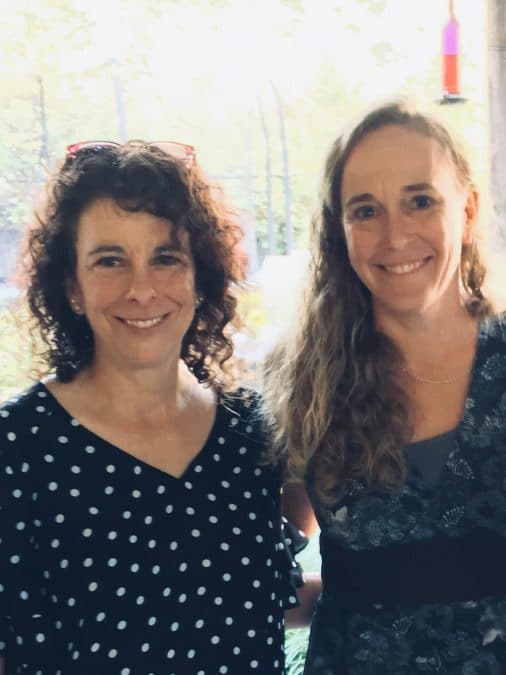In March 2020, the World Health Organization labeled the spread and volume of novel coronavirus cases as a global pandemic. Psychologists and researchers recently began to study the psychological effects of stress related to the health crisis, including quarantine.
“We need to be around other people. We are not able to do that, and it’s affecting families,” said Sue Hobbs, Ph.D, Citizen Potawatomi Nation member and psychologist.
She and her research partner Kristen Alexander, Ph.D, constructed and released a survey in April 2020 to collect data from families regarding the stressors of shelter-in-place orders. Hobbs is an assistant professor and Alexander is a professor of child and adolescent development at California State University, Sacramento.

“It’s a unique opportunity to contribute to science because COVID-19 is so widespread and is affecting families around the world,” the Darling family descendant said.
Hobbs and Alexander felt the stress of quarantine themselves in spring 2020; however, they started the research project after considering their expertise and feeling compelled to contribute to the global situation in a positive way.
“I was so shocked by what was happening around me, and I was just trying to tread water myself. It took a call for research to wake me, and for me to recognize the opportunity for research,” Alexander said.
“I agree,” Hobbs added. “And then I thought, we should contribute because there’s just no research. There’s nothing because this is new, and people need information — real information.”
Survey development
They developed their survey by reviewing and selecting validated questionnaires about well-being, family function and perceived stress. It takes approximately 20 minutes to complete with more than 100 questions regarding perceived stress over time, emotional health, coping, COVID-19 and childhood experiences resulting in cumulative stress. They considered loss of income, homeschooling children, health, lack of social interaction, working essential positions and parent-child relationships.
“What are we replacing (support systems) with? And how are we coping with this stress, and how much perceived stress are we experiencing?” Alexander asked. “So, of course, we think people are experiencing stress, and evidence so far shows that there is an increased level of stress in the families. But we need evidence for stress and how it’s impacting family interactions. We’re particularly looking at the parents’ well-being and parenting.”
They wanted an anonymous survey and asked for general demographics from participants to encourage honesty and truth. Hobbs also focused on Native American participation, a section of the population she often feels gets left out or lumped in with other groups. As a CPN member, she encouraged participation through her university contacts and social media. Nearly 5 percent of their feedback accumulated by late September came from Indigenous people; July 2019 statistics from the U.S. Census Bureau estimate American Indians and Alaska Natives comprise less than 2 percent of the population.
“Usually when we conduct research, we get one or two responses from Native Americans or people who say that they’re of Native American ancestry. … I want to make sure the voices of Native Americans are heard,” Hobbs said.
Children’s perceptions
In general, their research pertains to children’s well-being; both of them found their niche while in college. Hobbs’ passion for statistics and Alexander’s love of studying cognitive development make them successful partners.
“I’m interested particularly in the child as part of the family,” Alexander said. “How are they interacting with the parents, and what are their relationships with others? How does that affect how children are constructing their reality, how they’re remembering things, how they’re talking about things?”
Hobbs studies children and the legal system. She finds that sometimes people perceive children to be ignorant or unable to provide accurate descriptions of their experiences. In reality, youths simply understand things their way, which Hobbs said does not make them wrong. She sees children as credible witnesses who perceive their surroundings accurately and tell the truth. Hobbs believes this applies to the coronavirus pandemic and the stress from it as well, with children feeling their parents’ depression and other emotions.
“These kids do know. They are experiencing this stress. They’re experiencing it themselves, and then they’re also feeling what their parents are experiencing. They might not understand completely what’s going on. But then neither do we. That makes it a lot harder on all of us,” she said.
Quarantining has required parents to take on new roles — teacher, primary playmate, counselor — while continuing to provide, discipline and comfort. The constant contact and closeness ensure everyone’s emotions rotate amongst each other.
“We’re hoping not only to find evidence that, ‘Yes, people are feeling more stressed. People are having more difficulties parenting.’ We want to find out what’s helping people cope. We need to get that information published and available to the public because this isn’t going to end soon,” Hobbs said.
Initial data analyzation of 349 participants indicates the pandemic significantly affected their well-being with many reporting an increase in perceived stress. Hobbs and Alexander continue to analyze the figures and write about their findings.
While they stopped accepting surveys about families and children, Hobbs and Alexander now seek statistics from adults, regardless of parenting status, through a second survey. Take the survey at cpn.news/hobbssurvey.
